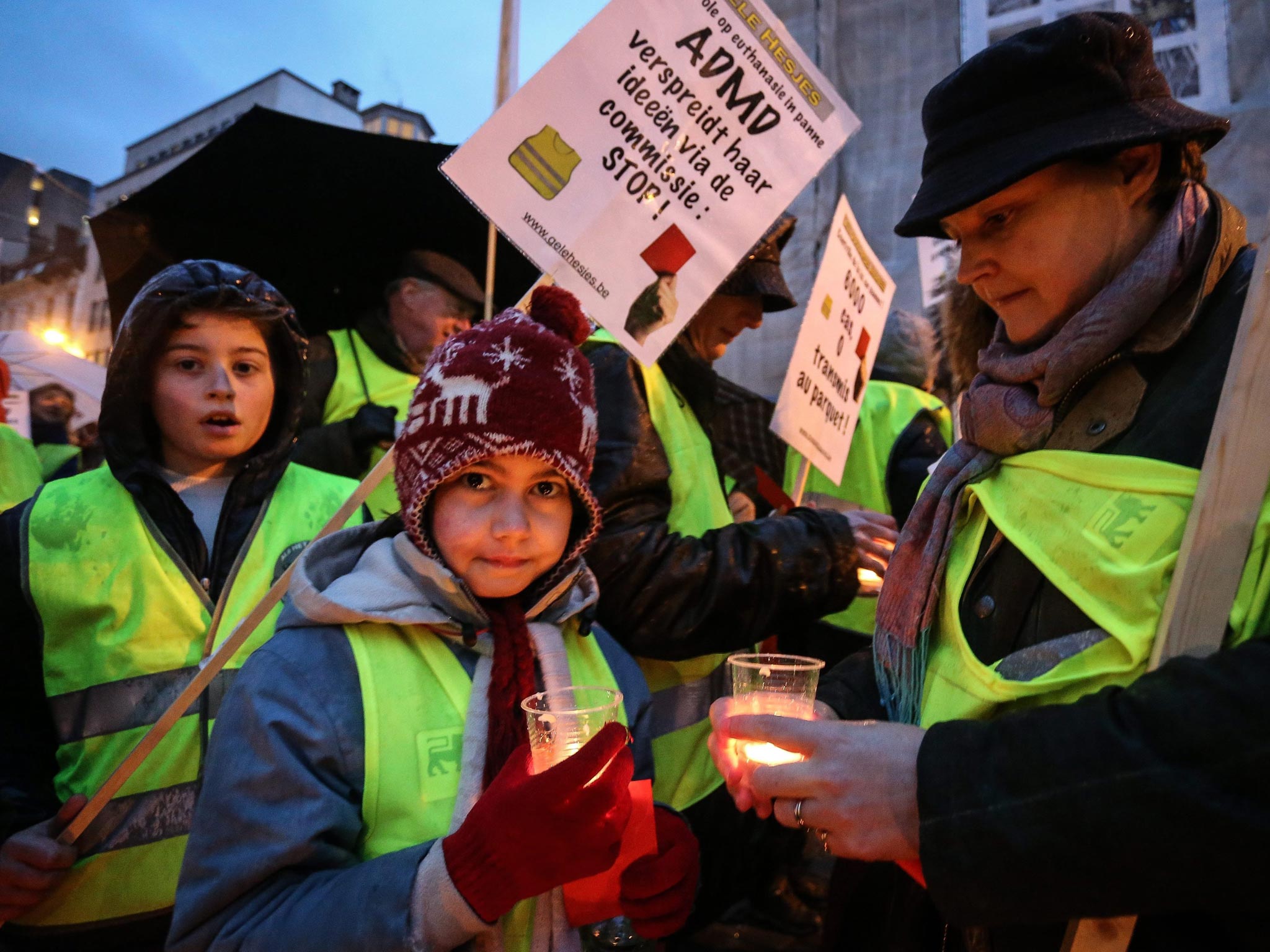Child euthanasia in Belgium: World first as doctors are allowed to help children with terminal illness die
But religious groups say such cases are so rare that there is no need to rush through new laws

Your support helps us to tell the story
From reproductive rights to climate change to Big Tech, The Independent is on the ground when the story is developing. Whether it's investigating the financials of Elon Musk's pro-Trump PAC or producing our latest documentary, 'The A Word', which shines a light on the American women fighting for reproductive rights, we know how important it is to parse out the facts from the messaging.
At such a critical moment in US history, we need reporters on the ground. Your donation allows us to keep sending journalists to speak to both sides of the story.
The Independent is trusted by Americans across the entire political spectrum. And unlike many other quality news outlets, we choose not to lock Americans out of our reporting and analysis with paywalls. We believe quality journalism should be available to everyone, paid for by those who can afford it.
Your support makes all the difference.Belgium has become the first country in the world to allow euthanasia for any age group, after its parliament backed amendments to the existing law which would in very rare cases permit doctors to help end the life of a terminally ill child.
Paediatricians and politicians fighting for the amendment argued that sick children in Belgium should have the same rights at the end of their lives as adults, who since 2002 have been able to ask doctors to help them die with dignity when faced with unbearable and irreversible suffering.
But religious groups and other doctors said such cases were so rare in children that there was no need to rush through new rules. They said guidelines on assessing a child’s capacity for making such life-and-death decisions were ill-defined, which they feared could lead to misuse.
After an emotional two-day debate, the lawmakers followed the lead of the Senate and overwhelmingly approved the amendments, which will come into force as soon as Belgium’s monarch, King Philippe, signs the law. He is not expected to oppose it.
In the Chamber of Representatives, also known as the “lower house” of parliament, 86 lawmakers voted in favour, 44 against and 12 abstained. Most opposition parties supported it, as well as the governing socialists and liberals. One member of the public in the gallery shouted “murderers” in French when the vote was passed, Reuters reported.
Under the amendments, any terminally ill child can request euthanasia, but such a request would only be granted if the child was close to death and a team of psychologists, doctors and other medical professionals agreed that he or she was mature enough to understand the meaning of euthanasia. Any request would also require the approval of the parents.
“As a paediatrician, the first thing we want to do is cure children and babies and make them better as soon as possible,” said Dr Gerlant van Berlaer, from the University Hospital Brussels. “We’re just talking about the things we cannot resolve. And then, even if it’s not a positive solution, we have to have some solution so these children do not suffer.”
Belgium, The Netherlands and Luxembourg are the only countries with legal euthanasia – although some nations, including Switzerland, permit assisted suicide. In The Netherlands, children as young as 12 can request assistance to end their lives; in Luxembourg the minimum age is 18.
For Dr Stefaan Van Gool, a paediatrician at the University of Leuven, the new laws in Belgium amount to “giving lethal injections to children”. He was one of more than 170 pediatricians who signed an open letter this week urging parliament to postpone its decision.
“I have never had such a type of question so I don’t see the urgency,” he told The Independent, adding that he also feared that vulnerable children could become victims of misinterpretations of the law: “If one opens the door, you have no control any more of what is going through this door.”
Paediatricians in favour of the amendment agree that young patients requesting euthanasia are rare. But they are thankful they can now openly discuss all the options when such a request is made, knowing that medical teams and the relatives of the child need not fear legal action.
“I can bear them suffering if that’s their wish; what I can’t bear is that I can’t talk about other solutions and discuss with my patients what they think about this,” said Dr Jutte Van der Werf Ten Bosch, a paediatric oncologist from University Hospital Brussels. “That makes me feel that I’m a coward and I’m not giving them all the possibilities.”
Join our commenting forum
Join thought-provoking conversations, follow other Independent readers and see their replies
Comments